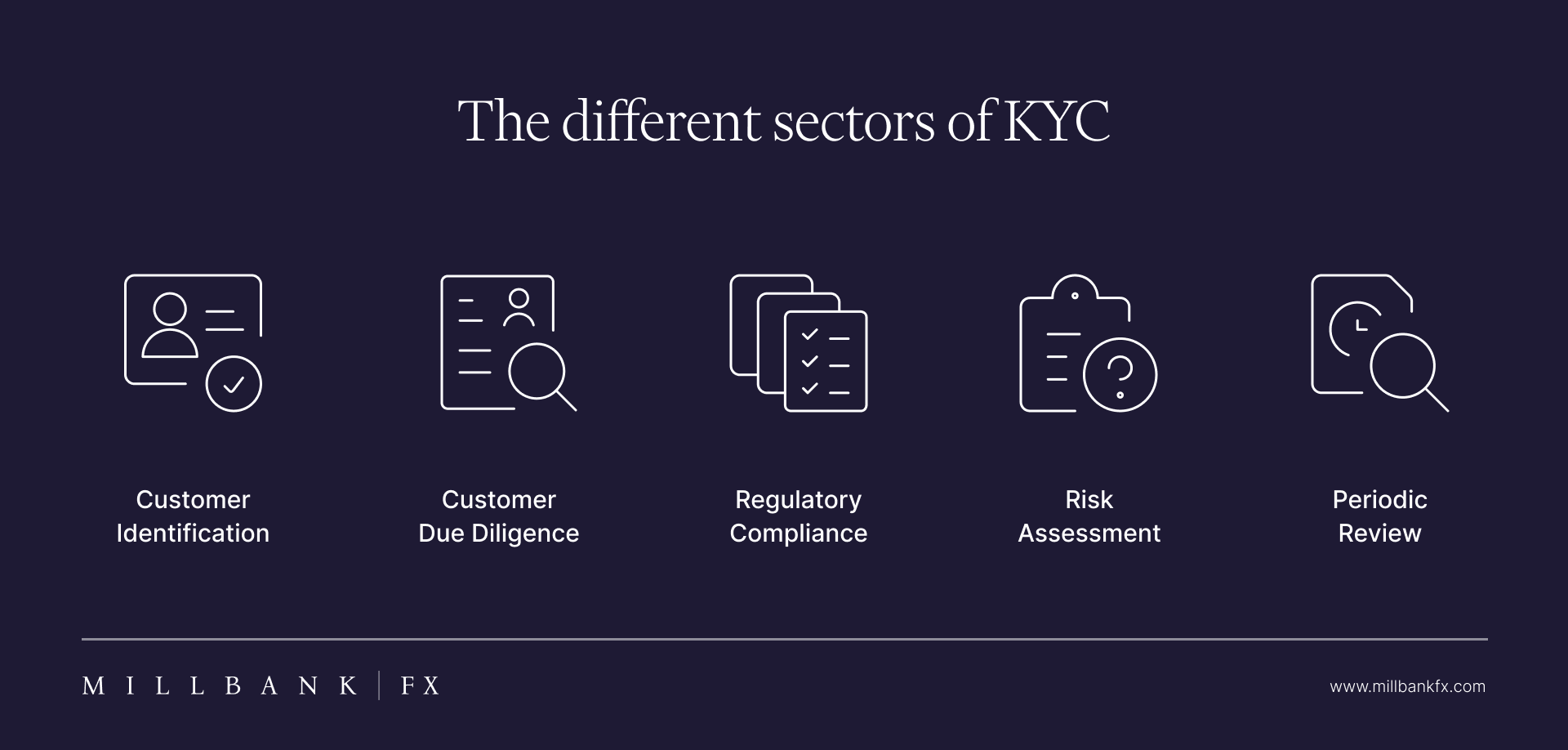Why KYC Matters for UK Importers?
Know Your Customer (KYC) processes are a crucial but commonly misunderstood component of cross-border trading for UK importers. Robust KYC not only serves as a regulatory requirement but directly impacts speed of onboarding, banking relationships, and the overall efficiency of international payments. In sectors as diverse as electronics, clothing, food, metals, and agriculture, KYC plays a foundational role in building trust and enabling frictionless cross-border transactions. This guide outlines best practices and practical advice for cross-vertical finance leaders seeking to optimise their KYC approach in today’s compliance landscape.

What is KYC and Why Do Importers Need It?
KYC, or Know Your Customer, is the set of due diligence procedures UK financial institutions and payments providers must perform to verify the identity and legitimacy of their business clients before allowing them access to services such as cross-border payments, currency exchange, or hedging solutions. For importers, KYC compliance matters for several reasons:
- It satisfies requirements set by UK authorities, banks, and FCA Authorised providers aiming to combat money laundering and fraud.
- It instils confidence in counterparties and payment providers, smoothing global payment logistics.
- Streamlined KYC reduces potential delays and cost overruns from blocked remittances or frozen accounts.
Key KYC Requirements
Across sectors, the general requirements for importers entering new financial relationships include:
- Business verification (Companies House registration, valid business address, incorporation documents)
- Identification of directors/owners (passport, driving licence, or national ID)
- Proof of source of funds (bank statements, invoices, contracts)
- Understanding of intended activity (nature of business, countries traded with)
KYC Across Sectors: Practical Differences
While the essential documents remain similar, each sector faces unique challenges during KYC onboarding:
- Electronics importers often must demonstrate supply chain legitimacy due to risk of counterfeit or dual-use goods.
- Food sector importers frequently need to provide additional certifications, such as phytosanitary documentation or supplier vetting evidence.
- Metals companies may encounter questions around scrap sourcing or conflict minerals.
- Clothing importers are asked about factory audits and ethical supply chain traceability.
- Agriculture importers can expect closer scrutiny of their origin documentation, especially for products from emerging markets.
Step-By-Step KYC Onboarding for Importers
Understanding the common KYC journey can reduce stress and prevent bottlenecks:
- Initial Application: Provide company information and basic details about intended payment volumes and geographies.
- Document Submission: Digital upload of ID, proof of address, company registration, and (if required) supporting contracts.
- Due Diligence: Provider reviews documentation, may request clarifications or further evidence (especially on source of funds/wealth).
- Risk Assessment: Automated and manual checks for PEPs (politically exposed persons), sanctions, and adverse media.
- KYC Approval: Once satisfied, account activation is typically completed within a few hours for straightforward cases.
- Ongoing Monitoring: Providers may request periodic updates, especially if business volumes or counterparties materially change.
How KYC Protects Importers’ Margins
Consistent KYC not only satisfies compliance, but also protects profit margins by ensuring:
- Swift access to competitive FX solutions when you need them.
- Lower friction in releasing supplier payments, avoiding demurrage or late penalties.
- Smoother cash flow management as funds are less likely to be held pending extra information.
A streamlined KYC process helps importers mitigate risks of delayed shipments or additional banking costs, which can erode margins—especially in sectors where 2% currency swings on a £1 m order could mean a £20,000 difference.
Reducing KYC Friction: Tips for UK Finance Leaders
- Keep all legal documentation up to date and digitised for rapid access.
- Work with experienced, FCA Authorised providers who can guide you through sector-specific requirements.
- Engage compliance teams early when new trading partnerships or geographies are considered.
- Communicate anticipated payment volumes and unusual activities in advance to your account manager.
- Encourage suppliers to maintain traceable, verifiable records to streamline third-party due diligence.
For importers using hedging products like forward contracts, providers may also want clear visibility of underlying commercial exposures and potential collateral arrangements.
Common Pitfalls and How to Avoid Them
- Incomplete documents: Ensure signatures, dates, and all pages are present on submitted files.
- Slow response to queries: Respond promptly to requests for clarifications to prevent onboarding stalls.
- Outdated company details: Notify your provider of any change in directors, shareholders, or trading addresses.
- Not anticipating enhanced due diligence: Sectors deemed high-risk (certain electronics, metals sources, or food origins) may require additional evidence.
Thorough KYC: A Strategic Advantage
Far from being a regulatory box-tick, comprehensive KYC processes position importers as reliable, well-prepared partners for suppliers and banks alike. Proactive compliance reduces onboarding times with new FX or payments providers, optimises cash flow, and builds trust with international counterparties.

KYC as an Ongoing Process
KYC is not completed once and forgotten. Annual reviews, shifts in directorship or shareholdings, and significant changes in trading volumes or supplier base will all trigger new checks. Finance heads should maintain open dialogue with their providers and anticipate regular requests for updated information.
Digital KYC and Future Trends
The rise of digital onboarding means many providers—including Millbank FX—enable much of the KYC process through secure online portals, reducing paperwork and accelerating approvals. In the future, shared digital KYC frameworks and improved data standards will further decrease friction, creating even greater value for cross-vertical importers.
Streamlining Compliance Without Hindering Growth
Efficient KYC is essential for any UK importer working with overseas suppliers or currencies. By preparing in advance, understanding sector nuances, and partnering with providers who prioritise speed and transparency, importers can protect both their margins and their reputations.




